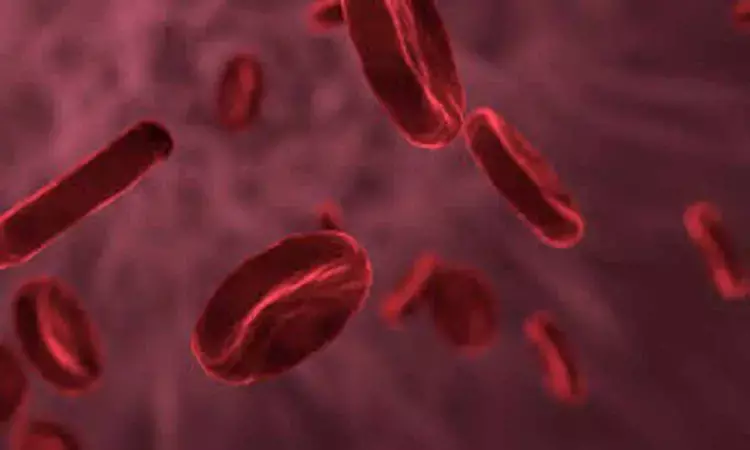- Home
- Medical news & Guidelines
- Anesthesiology
- Cardiology and CTVS
- Critical Care
- Dentistry
- Dermatology
- Diabetes and Endocrinology
- ENT
- Gastroenterology
- Medicine
- Nephrology
- Neurology
- Obstretics-Gynaecology
- Oncology
- Ophthalmology
- Orthopaedics
- Pediatrics-Neonatology
- Psychiatry
- Pulmonology
- Radiology
- Surgery
- Urology
- Laboratory Medicine
- Diet
- Nursing
- Paramedical
- Physiotherapy
- Health news
- Fact Check
- Bone Health Fact Check
- Brain Health Fact Check
- Cancer Related Fact Check
- Child Care Fact Check
- Dental and oral health fact check
- Diabetes and metabolic health fact check
- Diet and Nutrition Fact Check
- Eye and ENT Care Fact Check
- Fitness fact check
- Gut health fact check
- Heart health fact check
- Kidney health fact check
- Medical education fact check
- Men's health fact check
- Respiratory fact check
- Skin and hair care fact check
- Vaccine and Immunization fact check
- Women's health fact check
- AYUSH
- State News
- Andaman and Nicobar Islands
- Andhra Pradesh
- Arunachal Pradesh
- Assam
- Bihar
- Chandigarh
- Chattisgarh
- Dadra and Nagar Haveli
- Daman and Diu
- Delhi
- Goa
- Gujarat
- Haryana
- Himachal Pradesh
- Jammu & Kashmir
- Jharkhand
- Karnataka
- Kerala
- Ladakh
- Lakshadweep
- Madhya Pradesh
- Maharashtra
- Manipur
- Meghalaya
- Mizoram
- Nagaland
- Odisha
- Puducherry
- Punjab
- Rajasthan
- Sikkim
- Tamil Nadu
- Telangana
- Tripura
- Uttar Pradesh
- Uttrakhand
- West Bengal
- Medical Education
- Industry
Researchers use 7T MRI for studying SCD impact on brain

The findings support and extend previous reports of reduced hippocampal volume in SCD patients but provide more insights on the specific hippocampal subfields that are impacted.
USA: SCD can have a severe effect on specific subfields of the hippocampus -- a highly complex part of the human brain that controls memory and learning and is very susceptible to injury or disorders, according to a recent study.
In the study, published in the journal, Neuroimage: Clinical, the researchers used a unique and powerful MRI device to study the impact of Sickle Cell Disease (SCD) on the brain.
Sickle Cell Disease (SCD) is a genetically inherited group of red blood cell disorders. According to the CDC, an estimated 90,000 to 100,000 people in the United States live with this disease, and it disproportionately affects Black or African Americans; it occurs in roughly 1 in every 500 individuals in this demographic.
"This is a first-of-its-kind project that uses our lab's whole-body 7-Tesla magnetic resonance imager (7T MRI) alongside our optimized Tic Tac Toe RF head coil system to get clear and quality neural images of patients affected by SCD," said Tamer Ibrahim, professor of bioengineering and director of the Radiofrequency (RF) Research Facility and the 7-Tesla Bioengineering Research Program (7TBRP).
Individuals with SCD have red blood cells that contain abnormal hemoglobin. This can cause the red blood cells to become hard, sticky and mutate into a unique crescent shape which inhibits the cell's passage through small blood vessels. These blockages affect blood and oxygen flow and consequently cause tissue damage -- the source of many SCD complications.
7-Tesla imaging has revealed abnormalities in the hippocampus for other neurodegenerative and neuroinflammatory diseases, so Ibrahim and his collaborators investigated SCD to see if it has a similar effect.
"Our findings support and extend previous reports of reduced hippocampal volume in SCD patients but provide more insights on the specific hippocampal subfields that are impacted," Ibrahim explained. "The subfields are tiny structures within the hippocampus which can only be seen in ultrahigh resolution acquisitions -- a feature of 7-Tesla imaging -- and enhanced with the 'Tic-Tac-Toe' antenna technology."
The next steps of this research are to investigate the mechanisms that lead to these structural changes in addition to electrical changes in the brain and how they relate to cognitive performance in SCD patients.
Advancing "Tic-Tac-Toe"-Themed MRI Technology
Ibrahim continues to improve the lab's 7-Tesla imaging technology, which is leveraged in 28 active collaborative projects funded by the National Institutes of Health. It is the most widely-used RF coil system in a given 7-Tesla site.
This advanced technology can provide higher resolution and enhanced contrast human MRI images, but its operational frequency (~?297 MHz) remains an obstacle in realizing the device's full potential. Ibrahim's group published recent findings related to their technology in Scientific Reports.
"The major challenge of the 7-Tesla imaging is the inhomogeneities, or lack of uniformity, of the RF fields inside the human head, resulting in brain images with voids in certain anatomical regions," said Tales Santini, a postdoctoral associate in the RF Research Facility. "In the past 12 years, our lab has developed innovative RF antenna designs which greatly increase the homogeneity of the fields, thus, enabling high-resolution whole-brain images with minimal or no voids."
Reference:
The study titled, "Analysis of hippocampal subfields in sickle cell disease using ultrahigh field MRI," is published in the journal Neurolmage: Clinical.
DOI: https://www.sciencedirect.com/science/article/pii/S2213158221000991
Hina Zahid Joined Medical Dialogue in 2017 with a passion to work as a Reporter. She coordinates with various national and international journals and association and covers all the stories related to Medical guidelines, Medical Journals, rare medical surgeries as well as all the updates in the medical field. Email: editorial@medicaldialogues.in. Contact no. 011-43720751
Dr Kamal Kant Kohli-MBBS, DTCD- a chest specialist with more than 30 years of practice and a flair for writing clinical articles, Dr Kamal Kant Kohli joined Medical Dialogues as a Chief Editor of Medical News. Besides writing articles, as an editor, he proofreads and verifies all the medical content published on Medical Dialogues including those coming from journals, studies,medical conferences,guidelines etc. Email: drkohli@medicaldialogues.in. Contact no. 011-43720751


